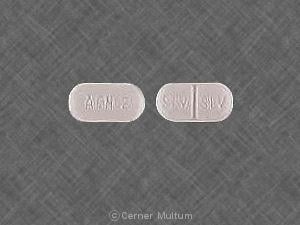
August 30, 2010 – According to the results of a late-breaking analysis involving more than 200 000 patients in recent clinical trials, antihypertensive treatments with renin-angiotensin system (RAS) inhibitors significantly differ in their ability to preserve lives.
This new analysis, presented today at the European Society of Cardiology (ESC) Congress in Stockholm, Sweden, revealed that patients receiving a treatment including a RAS inhibition with perindopril had a significantly greater improvement in life expectancy.
"The goal of hypertension management is not only to reduce blood pressure and cardiovascular events, but also to reduce deaths", says study co-investigator professor Michel Bertrand. "The benefits of RAS inhibition for the reduction of cardiovascular morbidity as stroke or myocardial infarction (for ACE inhibitors) is well established. However, the impact on mortality is less well known."
The analysis reviewed 21 international morbidity-mortality trials performed over the last decade and principally including hypertensive patients. Only three treatment strategies evaluated in three trials, ASCOT-BPLA, ADVANCE, and HYVET, demonstrated significant reductions in death from all causes.
In each of these three landmark trials, perindopril alone or in combination was in the active treatment arm, making it the antihypertensive with most evidence-based data on mortality reduction. None of the 18 remaining trials demonstrated a significant reduction in mortality, whatever the treatment analyzed. The 21 clinical trials analyzed led to a significant 13 percent reduction in all-cause mortality.
In contrast, combining the results of the 18 trials excluding perindopril demonstrated absolutely no impact on mortality, even when pooling more than 160 000 patients.
"As this difference in all-cause mortality is not explained by the level of risk of the patients, by their age or blood pressure, or by the duration of the studies, our hypothesis is that it is related to a specific effect of the active treatments used in these trials," points out professor Michel Bertrand. "Perindopril was the only agent used in all three trials, the diuretic indapamide was used twice, in ADVANCE and HYVET, and the calcium channel blocker amlodipine once, in ASCOT. It is important that the effect of a specific antihypertensive on mortality reduction be taken into account when considering the treatment of hypertension patients, particularly those at high risk."
ADVANCE Action in Diabetes and Vascular disease: PreterAx and DiamicroN MR Controlled Evaluation was designed, conducted, monitored, analyzed, and reported by a collaborative medical research group supported by the Australian Government's National Health and Medical Research Council after full peer review.
The first part of ADVANCE investigated the effects of intensive blood pressure lowering on outcome using a fixed combination of perindopril and indapamide (Preterax(R)). It showed that the routine administration of a fixed combination of perindopril and indapamide improves survival and reduces the risk of heart and kidney disease.
Perindopril is licensed worldwide for treatment of hypertension, coronary artery disease, and heart failure under the trade names Coversyl, Coverex, Acertil, Prestarium, Prexanil, Prexum, Coverene, Coversum, Procatan and Aceeon.


 January 28, 2026
January 28, 2026 









